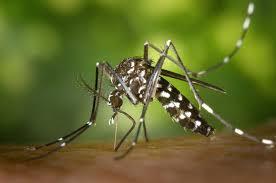Haiti Has Cut Malaria Cases in Half Since 2010

2 November 2020
Haiti has cut malaria cases in half. Its successful efforts must continue
BY MARIE GRETA ROY CLEMENT
COVID-19 has brought the world to a standstill, crippling global health systems and challenging political leaders to strengthen public-health infrastructure. As Haiti’s minister of health, I stand in solidarity with families who have lost loved ones and struggle with the severe damage this disease has inflicted. Malaria Day in the Americas, observed on Nov. 6, underscores the urgent need to build more sustainable, resilient health systems in countries such as Haiti as we continue tackling one of the world’s most ancient diseases amid this unprecedented pandemic. Alarming recent research shows that pausing malaria prevention efforts in developing nations such as Haiti during COVID-19 will have deadly consequences. The fights against COVID-19 and malaria are one and the same.
Before a single case of COVID-19 was confirmed in Haiti, we developed a multi-sector action plan —now under way — to confront this outbreak. The plan reflects the strategic vision of the Haitian government to build on the community-outreach component of our health system to respond to deadly, infectious diseases. Consequently, initiatives to fight tuberculosis and HIV and, particularly to eliminate malaria, remain a priority in tandem with our COVID-19 response. As a result, we have stepped up additional measures of communication with the public to prevent delays in the tracking, testing and treatment of each malaria case in urban and rural areas.
We have had dynamic technical and financial support from partners, including the U.S. Centers for Disease Control and Prevention, the CDC Foundation, The Carter Center, the Clinton Health Access Initiative, the Pan American Health Organization/World Health Organization and other “Malaria Zero” partners, and The Global Fund to Fight AIDS, Tuberculosis and Malaria (Global Fund). As a result, we have made immense progress toward Haiti’s goal of eliminating malaria. Between 2010 to 2018, we cut cases of malaria in half, gathering viable data, identifying malaria hotspots and extending, through an effective community strategy, malaria diagnostic and treatment to communities that are difficult to access. This has allowed us to implement innovative interventions, such as indoor spraying and mass, targeted drug administration, which have helped prevent and significantly reduce transmission in endemic regions of the country. We have developed a more-robust disease surveillance system that lets us make rapid epidemiological decisions.
These successes in the fight against malaria given Haiti unprecedented opportunity to apply lessons learned to battling COVID-19, thanks to our heroic community health workers on the front lines. They sacrifice to ensure that their communities are safe and understand the dangers of deadly, preventable diseases. It is crucial to sustaining efforts to test, trace and treat those with malaria and COVID-19 while protecting front-line health workers. Haiti’s health officials and partners, with the support of The Global Fund, have adapted outreach measures to protect from COVID-19 those delivering and receiving malaria interventions. We must leave no one behind; everyone’s safety depends on it. Martine Moïse, Haiti’s first lady, has played an influential role as president of The Global Fund’s Country Coordinating Mechanism. There, she works to ensure adequate protective resources reach health workers in their efforts to save lives.
Economic hardships in Haiti prevent our population from easily exercising lifesaving measures during these challenging times. If health investments and partnerships stall, we’ll see damaging social and econonic effects. We must acknowledge that investments made to address diseases such as malaria in Haiti are matters of life and death. We must step up the fight so that pregnant women in each community will receive life-saving bed nets to protect themselves and their unborn children from disease-carrying mosquitoes, and young children do not have to miss school because they lack access to malaria medication. These are the vulnerable voices that must be heard. They are the reason we must work to realize the vision of a malaria-free Haiti—and a malaria-free world.
Dr. Marie Greta Roy Clement is the minister of health to the Ministry of Public Health and Population in Haiti.
Add new comment